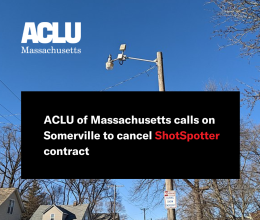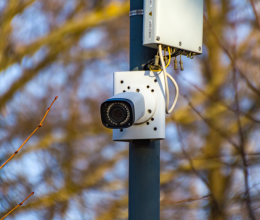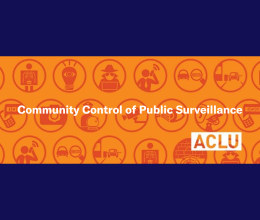
In the newest case involving cell site location information (CSLI), the Massachusetts Supreme Judicial Court today held that the government must get a warrant for anything more than six hours of "telephone call" CSLI.
Our staff attorney Jessie Rossman had this to say:
"The Supreme Judicial Court's decision in Commonwealth v. Estabrook confirms Massachusetts' role as a leader in protecting our location information from unreasonable government intrusion. In the landmark 2014 case Commonwealth v. Augustine, which the ACLU litigated, the SJC held that the government collection of two weeks' worth of CSLI is a search that requires a warrant. Nevertheless, the Commonwealth argued in Estabrook that it could constitutionally obtain two weeks of CSLI without a warrant so long as it ultimately used only six-hours of these records.
"The amicus brief we submitted together with the Berkman Center for Internet & Society at Harvard Law School and the Electronic Frontier Foundation argued that Augustine squarely foreclosed this position. Today, the Court agreed. Writing for a unanimous court, Justice Botsford explained "it would violate the constitutional principles underlying our decision in Augustine to permit the Commonwealth to request and obtain without a warrant two weeks of CSLI—or longer—so long as the Commonwealth seeks to use evidence relating only to six hours of that CSLI." The Court went on to clarify that a warrant is required anytime the government seeks more than six hours of telephone call CSLI.
"Reaffirming Augustine, today's holding is a victory for individuals throughout the Commonwealth and their reasonable expectations of privacy in their location information."
Our legislative counsel Gavi Wolfe had this to say:
"The SJC has made clear, once again, that it's unacceptable for the state to track people's movements without a warrant, but the legislature should explicitly require a warrant for the full range of our daily online activities. Following on this decision, the legislature should pass comprehensive gold-standard electronic privacy protections, including for email communication and all the personal information companies store in "the cloud" on our behalf."





